
The National Assembly is in the days of active, urgent, and highly concentrated work to complete the huge amount of work at the last session of the 15th term.
On this occasion, Dan Tri newspaper interviewed Politburo member and National Assembly Chairman Tran Thanh Man to hear him share about important milestones in the history of the National Assembly, especially the 15th National Assembly term - a term with many "unprecedented" things.


- Looking back over the past 80 years, from the Tan Trao National Congress - the predecessor of the Vietnamese National Assembly - to the birth of the first National Assembly and its 15 terms, the National Assembly has always accompanied the nation, decided on important issues, according to the will and aspirations of the people; performed well the functions of constitution-making, legislation, supreme supervision and decided on important issues of the country.
The birth of the National Assembly is the result of the revolutionary struggle of our people under the wise leadership of the Communist Party of Vietnam and the great President Ho Chi Minh.
The formation process and birth of the National Assembly are the crystallization of the right choice, smoothly combining patriotism with the universal values of Marxism-Leninism and Ho Chi Minh thought, in accordance with the aspirations of the people and the laws of historical development.
The National Assembly has always been the embodiment of the great national unity; the National Assembly of the People, by the People, for the People. In its structure and organization, the activities of the National Assembly have always ensured representation for all classes of people, ethnicities, religions and social components. Over 15 terms, the National Assembly has continuously developed and built a solid position in the hearts of the People.

The National Assembly is the highest representative body of the People, the highest State power body of the Socialist Republic of Vietnam, which has always been consistently and thoroughly affirmed in the Party Platform, institutionalized in the Constitutions and legal system of our country.
The National Assembly always firmly grasps and correctly applies the Party's guidelines, viewpoints and policies in its legislative activities, supervision and decision-making on important issues of the country.
The development of the National Assembly is a process of continuous inheritance, constant innovation and improvement in both organization and operation, meeting the requirements and tasks of each revolutionary stage. The practical experience of the previous National Assembly is always a valuable lesson for the improvement, consolidation, innovation and improvement of the quality of the activities of the next National Assembly.


- The 15th National Assembly's term is a special term, operating in a context facing many challenges, the complicated Covid-19 pandemic, natural disasters, severe climate change, and unpredictable fluctuations in the world's political and economic situation. The workload during the term has increased many times compared to previous terms, with many important issues, new, complex, and unprecedented contents.
In that situation, the National Assembly has made constant efforts to affirm its role as the highest State power agency, the highest representative agency of the People, demonstrating its mettle, intelligence, innovation, enhancing professionalism, publicity, transparency, democracy, and efficiency, performing well the functions of constitution-making, legislation, supreme supervision, and deciding on important issues of the country, as well as parliamentary diplomatic activities, leaving many outstanding marks.

The National Assembly has strongly promoted its role in perfecting institutions and laws; the amendment and supplementation of a number of articles of the 2013 Constitution has promptly institutionalized the Party's major policies, especially on the arrangement of the state apparatus in the direction of "streamlining, effectiveness, efficiency, closeness to the people, closeness to the people, closeness to reality".
Legislative activities have been strongly innovated in terms of thinking, construction process, and early preparation from afar; promoting the role of "being one step ahead in terms of institutions", promptly responding to new situations, meeting practical life requirements; policies always take people and businesses as the center, actively removing difficulties and obstacles to contribute to liberating production capacity, mobilizing and effectively using all resources for the cause of national development.
For the first time , the National Assembly submitted to the Politburo for consideration and approval the orientation of the Law-making Program for the entire term. The review of legal documents was actively implemented, detecting and promptly handling many contradictory, overlapping, and inappropriate regulations, ensuring the unity, synchronization, and feasibility of the legal system.
The National Assembly always accompanies, creates, and actively contributes to the country's development process, clearly demonstrated through accompanying the Government in promptly removing institutional bottlenecks, creating new momentum for the country's growth and development.
The National Assembly also decided to adjust the economic growth target for 2025 upward, demonstrating its determination and efforts to successfully implement socio-economic development goals for the 2021-2025 period, contributing to consolidating and creating a solid foundation to achieve double-digit growth in the coming time.
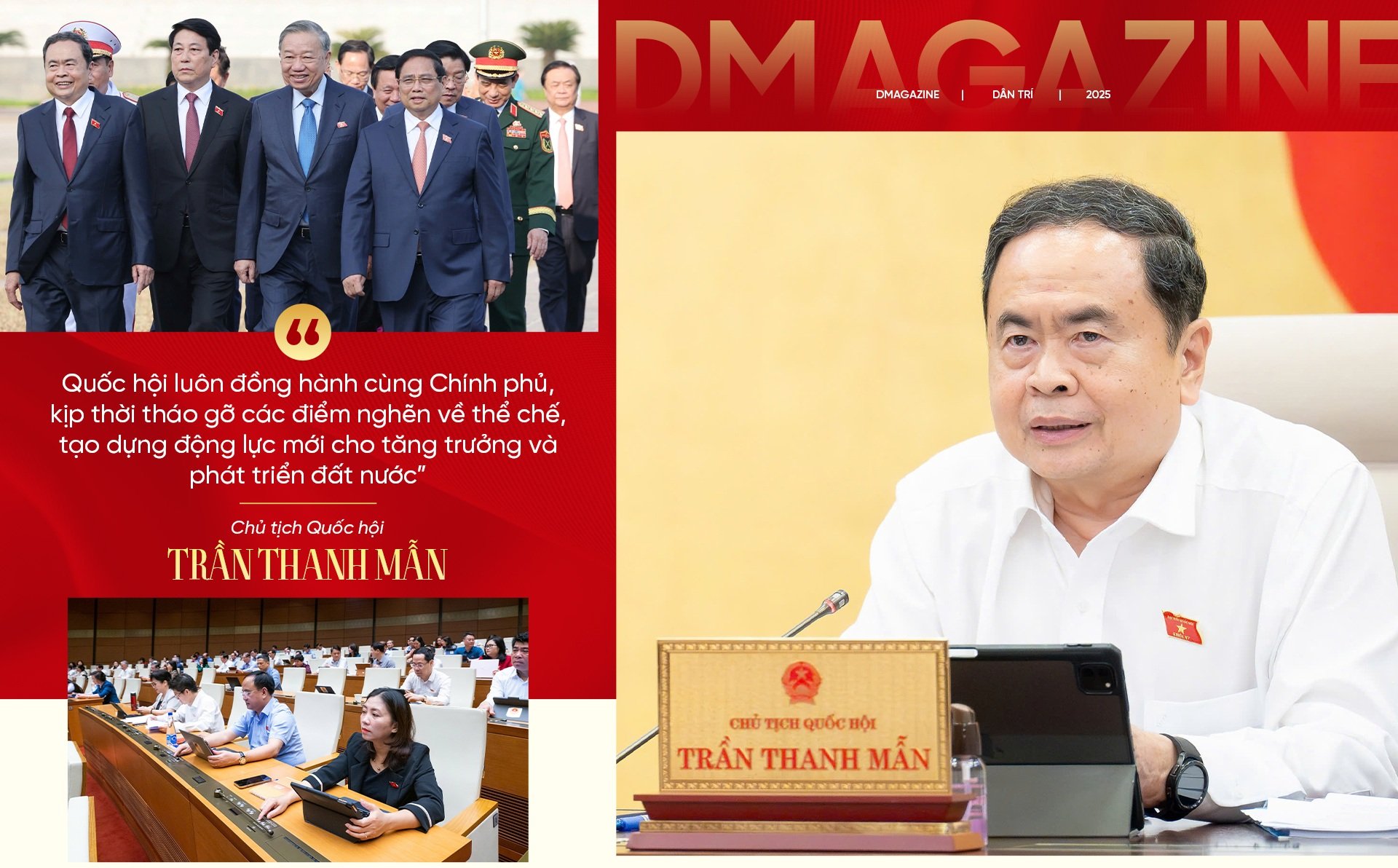
Supervision activities have been strengthened, focused, and substantial, with many practical innovations; concentrating on areas and issues of current importance, with profound impacts on socio-economic development and people's lives.
For the first time, the National Assembly's Supervisory Forum was successfully organized; along with the discussion in the hall of the Report on the results of supervising the settlement of voters' petitions; the results of receiving citizens, handling petitions and supervising the settlement of complaints and denunciations sent to the National Assembly,... which has contributed significantly to the work of perfecting the law, deciding important issues of the country, improving the effectiveness and efficiency of controlling State power, the operation of the State apparatus, and the responsibility for performing public duties, which has been highly appreciated and agreed upon by voters and the People.
The decision-making on important national issues has been fundamentally reformed; the National Assembly has accompanied and closely coordinated with the Government and relevant agencies to decide on many important and strategic issues, promptly responding to reality, serving rapid and sustainable socio-economic development, ensuring practical care for social security, education and health for the people, and at the same time, has decided on revolutionary issues regarding the organization of the state apparatus.
The National Assembly's foreign affairs activities have been promoted on both bilateral and multilateral levels, in depth, implemented at many levels, achieved many good results, created a strong impression, contributing to raising the level of Vietnam's foreign affairs activities along with the general successes of the Party's foreign affairs and State diplomacy.
Within the framework of multilateral parliamentary mechanisms such as the Inter-Parliamentary Union (IPU), the ASEAN Inter-Parliamentary Assembly (AIPA), the Asia-Pacific Parliamentary Forum (APPF), the Francophone Parliamentary Union (APF), and the Asian Parliamentarians' Forum on Population and Development (AFPPD), the Vietnamese National Assembly has actively participated and contributed many important initiatives.
For the first time, the Vietnamese National Assembly successfully hosted the 9th Global Conference of Young Parliamentarians with the participation of more than 300 young parliamentarians and delegates from more than 70 countries.
The way of organizing National Assembly sessions has also been improved, innovated, and flexibly adapted to the realities. The XV term has the largest number of sessions ever and is the first term in the history of its operation that the National Assembly organized 19 sessions, including 9 extraordinary sessions to promptly consider and decide on important and urgent issues, meeting the practical requirements.
The National Assembly has been exemplary in organizing the apparatus, and at the same time, proactively implementing assigned tasks to work with the entire political system to resolutely put the 2-level local government model into operation from July 1, 2025, which has been recognized and highly appreciated by the Party Central Committee, the Politburo, and the Secretariat.
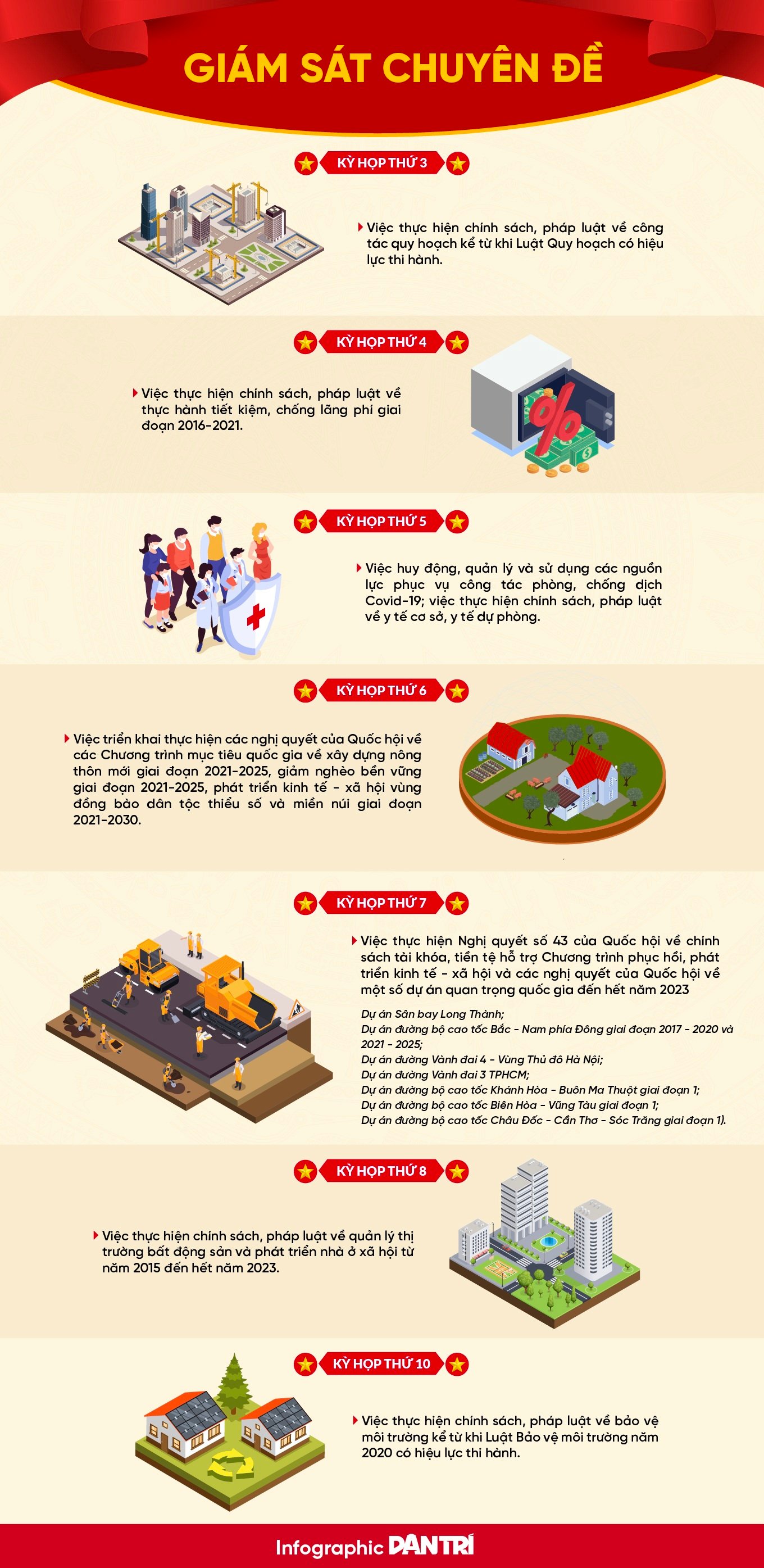
The National Assembly has actively deployed the application of science, technology, innovation and national digital transformation; promoted the application of artificial intelligence, digital transformation, built digital infrastructure, developed specialized platforms and systems, initially contributing to modernizing and improving the efficiency of the National Assembly's operations.
Along with that, the organization of the 80th Anniversary of the First General Election to elect the National Assembly of Vietnam was prepared early, implementing many meaningful and practical activities. The National Assembly also successfully organized for the first time a very solemn, meaningful and touching meeting between General Secretary To Lam and nearly 2,000 National Assembly deputies of all periods.



- With proud achievements in practical activities over the past 5 years, the 15th National Assembly has drawn many profound lessons.
One is to ensure the absolute and comprehensive leadership of the Party over the National Assembly. This is a vital factor, a key issue for the National Assembly to successfully fulfill all the important tasks assigned by the Party, State and People throughout its terms.
Second, inherit and strongly promote the achievements and lessons learned from the previous terms of the National Assembly, especially the spirit of solidarity, innovation, true democracy, openness and transparency. The National Assembly ensures the principle of collective work, decision by majority, and promotes the collective intelligence of National Assembly deputies to make quality and feasible decisions.
Third, clearly defining the central role of National Assembly deputies, as the key factor determining the quality, effectiveness and efficiency of the National Assembly's operations. Increasing the number of full-time National Assembly deputies, improving their capacity, qualifications, operational skills and fostering professional knowledge, contributes significantly and practically to the implementation of the National Assembly's tasks and powers.
Fourth is the proactive, determined, steadfast, united, and unified action of the entire political system; the concentration, clarity, strength, and decisive action of State agencies; the enhancement of effective coordination and cooperation with agencies and organizations at the central and local levels; the spirit of "coordination - companionship - clear division of labor" between the National Assembly and the Government in the entire legislative process, supervision, and decision-making on major national issues, especially from the 8th session onwards.

Fifth, the National Assembly must rely on the people, and National Assembly deputies must be closely connected with voters and the people, creating trust, position and prestige with the people. The National Assembly regularly grasps the thoughts and aspirations of voters and the practical requirements of life to advise on the timely promulgation, amendment and supplementation of legal regulations.
Sixth, a fuller and deeper understanding of the position, role and importance of the National Assembly's supervisory function, placed in close relationship with the constitutional, legislative and decision-making functions of the country. The National Assembly proactively reviews, studies and perfects the legal system on supervision, ensuring regular, comprehensive, public and democratic supervision activities, focusing on urgent and prominent issues in society and state management activities.
Seventh, in foreign affairs activities, the National Assembly has closely coordinated with the agencies of the National Assembly; with the foreign affairs of the Party, the Ministry of Foreign Affairs and other sectors, levels and fields, promoting the pioneering role in contributing to maintaining a peaceful and stable environment, firmly ensuring the sovereignty, unity and territorial integrity of the country.
Eighth, the organization and operation of the advisory and support apparatus have also been rearranged in a streamlined, professional, efficient, and modern direction; building a team of highly qualified advisory staff with a good understanding of law, policies, and analytical and forecasting skills has become an important factor helping to ensure the quality and effectiveness of advisory work and service to the National Assembly.
Ninth, the National Assembly needs to constantly improve and innovate working methods; proactively exploit and apply digital technology and artificial intelligence (AI) to shorten work processing time and improve quality and efficiency of operations.
In addition to the achievements, the activities of the National Assembly still have limitations that need to be overcome, such as the completion of institutions that have not fully met the requirements of development practice, are not compatible with the context of deep international integration and newly arising domestic socio-economic issues. The legislative program still needs to be adjusted and supplemented; some legal regulations are still limited, lacking in synchronization, feasibility, and low predictability.
There are still limitations in the supervision and decision-making of important national issues. Some emerging issues that have caused public outrage have not been promptly supervised; the urging and monitoring of post-supervision recommendations in some cases have not been drastic and effective.
Monitoring the implementation of agreements and the results of foreign affairs activities is not very effective; the activities of friendship organizations are still formal. Advisory work and organization to serve the activities of the National Assembly are sometimes passive. Although investment in information technology infrastructure, digital transformation, and facilities has received attention, there are still certain difficulties...

- The 10th session of the 15th National Assembly is very important. It is the regular session at the end of the year and also the last session of the 15th National Assembly, with the goal of completing most completely the tasks of the term.
At this session, the National Assembly is expected to review and decide on an exceptionally large volume of work, especially legislative work (with 53 laws and resolutions on legal norms), along with many fundamental contents to implement the goals and tasks of socio-economic development, national defense, security, foreign affairs, and social security .
The National Assembly will focus highly and spend more than 80% of the entire session's time on perfecting institutions and laws.
Of which, the National Assembly considered and approved 20 draft laws to comprehensively amend current laws; 16 draft laws amending and supplementing a number of articles in nearly 40 other laws; 13 new laws regulating very topical issues, such as: Law on Digital Transformation, Law on Artificial Intelligence, Law on E-Commerce, Law on Specialized Courts at the International Financial Center, etc.
The National Assembly will also consider and approve four resolutions on specific and special mechanisms and policies to implement Resolutions 59, 71, and 72 of the Politburo and remove difficulties and obstacles in organizing the implementation of the Land Law.
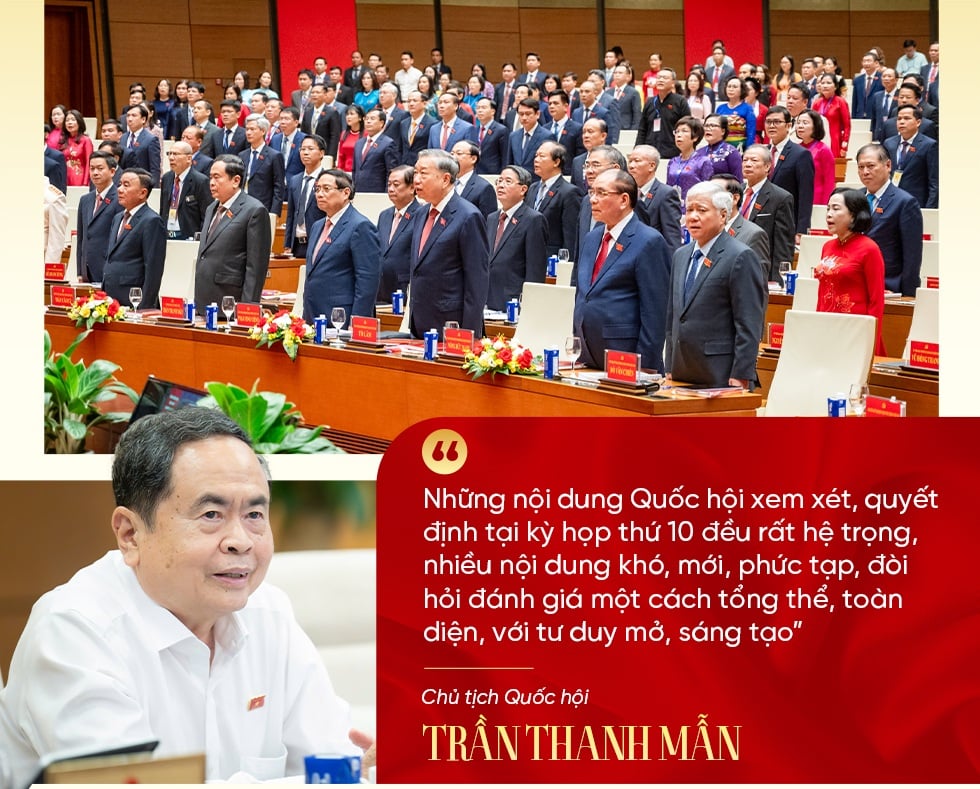
In addition, the National Assembly will review and decide on adjustments to the National Master Plan; 3 national target programs (including 1 program integrated from 3 national target programs implemented in the previous period); evaluate the results of implementing 5-year plans on socio-economic development; restructuring the economy; medium-term public investment; national finance...; re-supervise the implementation of the National Assembly's resolutions on thematic supervision and questioning; conduct personnel work, summarize the term and give opinions on draft documents submitted to the 14th National Party Congress.
The contents and policies that the National Assembly will consider and decide at the 10th Session are all very important, many of which are difficult, new, and complicated, requiring comprehensive consideration and evaluation with an open and creative mindset. Of which, 46/53 draft laws and normative resolutions will be considered and approved according to the process at one session or according to a shortened order and procedure.


- The new term will be an important milestone on the country's new development path, with a significant future orientation. The above situation poses great demands and tasks for the work of the National Assembly.
The 16th National Assembly and subsequent terms need to continue to focus highly on law-making, reviewing loopholes, gaps, obstacles, and bottlenecks in the law to amend, supplement, and perfect, turning institutions from bottlenecks into competitive advantages and development drivers.
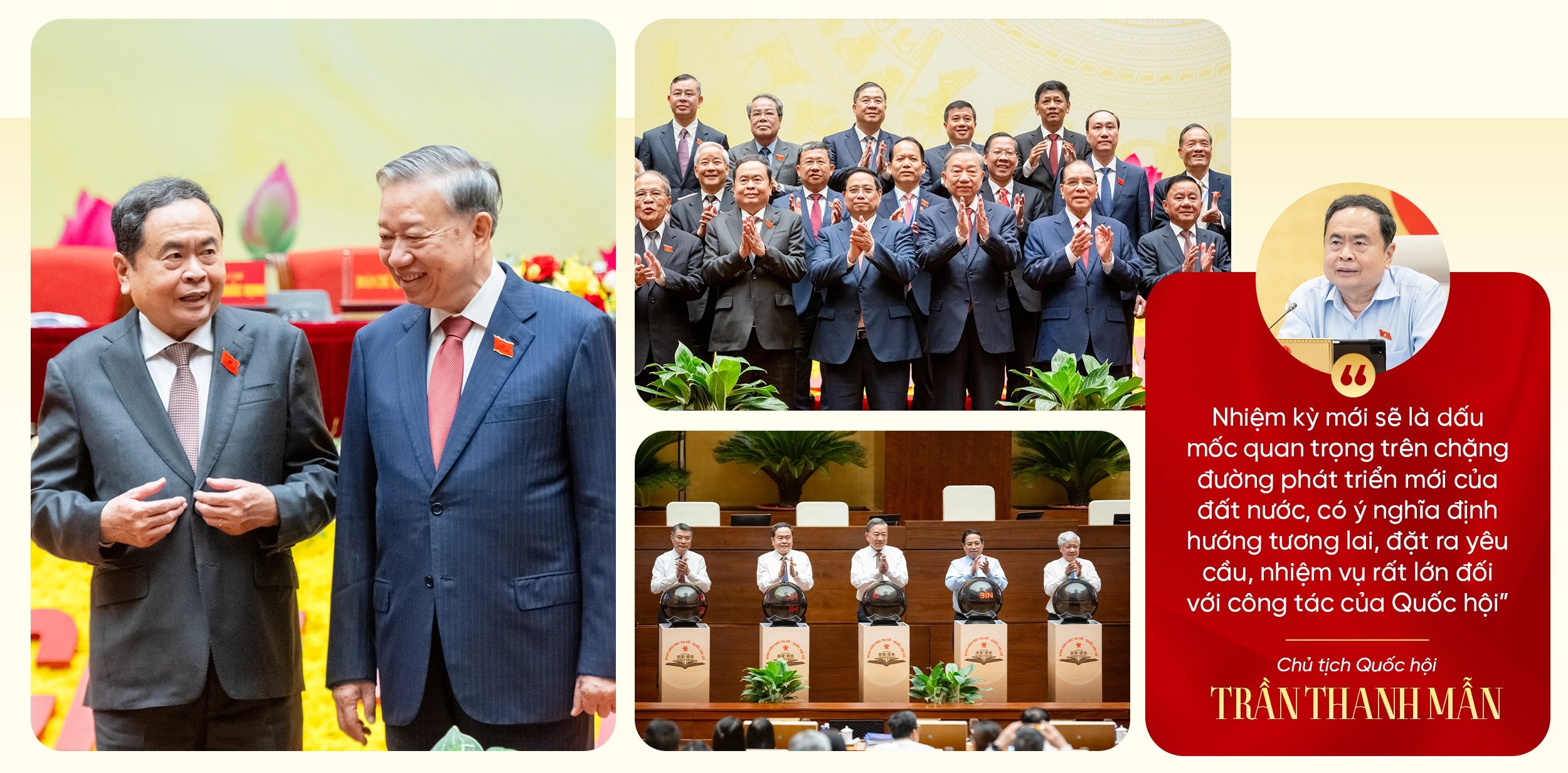
Firstly, the National Assembly needs to continue to innovate its thinking, perform well the three most important functions: legislation, supreme supervision, and deciding on important national issues. Legislative activities need to be identified as the "breakthrough of breakthroughs", must go ahead, pave the way, lead the country's development, encourage creativity, liberate all labor, and unleash all resources for development; ensure fair competition, improve integration capacity; focus on new areas such as digital economy, digital assets, data, renewable energy, green growth, circular economy, environment, climate change, non-traditional defense and security, etc.
Monitoring activities need to focus on issues such as land management, resources, environment, anti-corruption, waste prevention, protection of human rights, civil rights... Closely linked to reality and people's feedback, increasing surveys at the grassroots level, listening to opinions from reality, from voters and the business community to accurately identify hot spots and bottlenecks of the socio-economy, thereby having flexible, timely and realistic policy responses.
Activities to decide on important national issues must ensure objectivity and impartiality. All decisions must truly put the interests of the nation, the people, and the interests of the people above all else. First and foremost, we must resolutely prevent and eliminate all influence from group interests and all negative impacts from outside.
Second, the National Assembly needs to continue to promote its role and uphold the responsibility of National Assembly deputies . Each National Assembly deputy needs to demonstrate the desire to contribute, dare to think, dare to do, dare to innovate, dare to take responsibility, and truly be a loyal representative of the will and aspirations of the people.
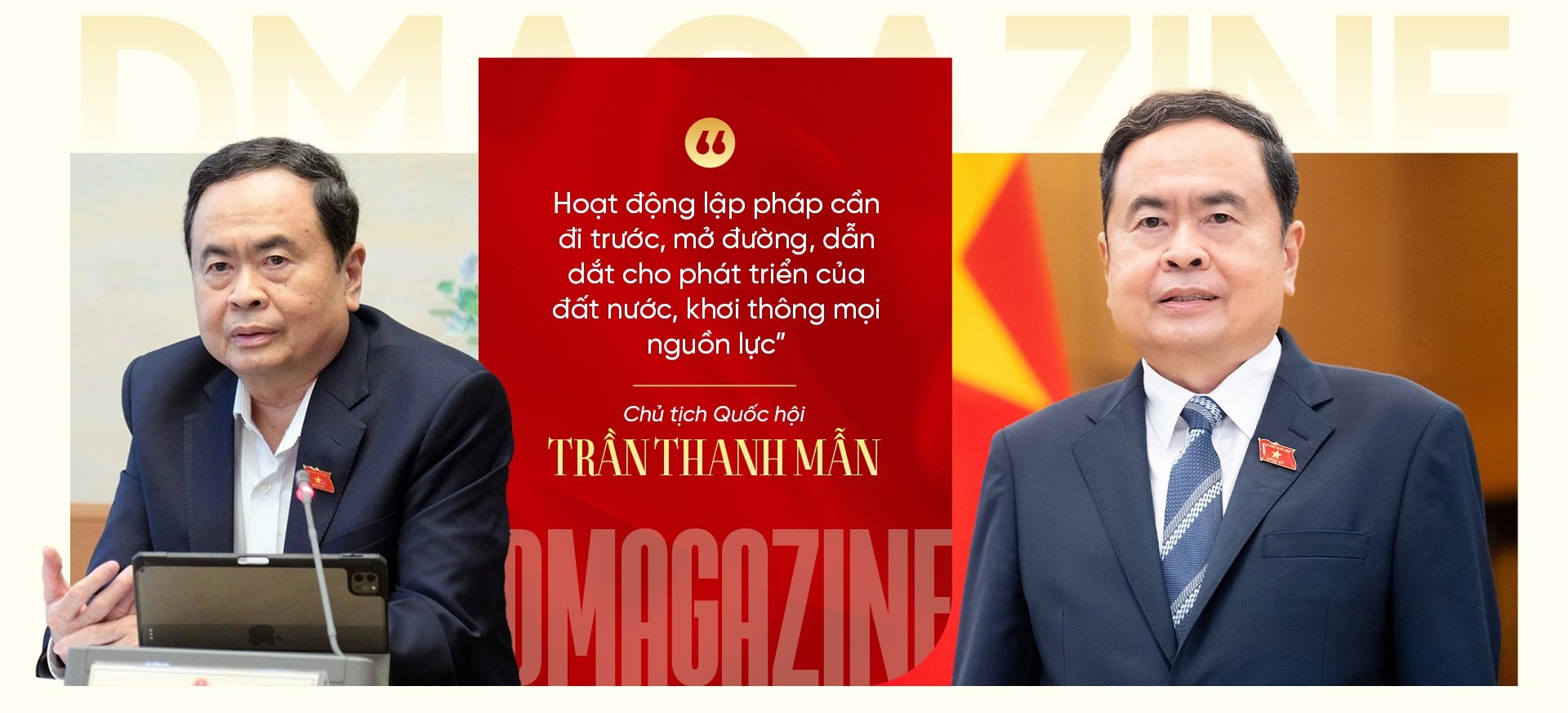
Third, continue to study and improve the way the National Assembly and its agencies operate, ensuring efficiency, reducing formality, and increasing substance. The focus is on continuing to improve the building of session agendas, methods of discussion, debate, questioning and answering questions, the verification process, organizing supervision, and meeting with voters; the central role of full-time National Assembly deputies; and the way the agencies of the National Assembly operate.
Fourthly, it is necessary to strengthen comprehensive digital transformation in the activities of the National Assembly, build a "digital National Assembly", apply artificial intelligence AI, consider the task of innovation and digital transformation as a breakthrough in organizing the implementation of functions and tasks of the National Assembly, National Assembly agencies and National Assembly deputies, and the digital popularization movement must be carried out regularly and continuously.
Fifth, it is necessary to strengthen coordination among agencies of the National Assembly, the Government, the Vietnam Fatherland Front, the Supreme People's Court, the Supreme People's Procuracy, the State Audit, and relevant agencies in preparing contents to be submitted to the National Assembly, ensuring consistency and efficiency. In addition, it is necessary to continue to improve the organization of the advisory and support apparatus in the direction of streamlining, professionalism, and effective operation; review functions and tasks to continue to rearrange, avoid overlap, and clearly define the roles of advisory and support agencies.

Content: Hoai Thu
Design: Tuan Huy
November 5, 2025 - 05:56
Source: https://dantri.com.vn/thoi-su/hoat-dong-lap-phap-di-truoc-mo-duong-dan-dat-su-phat-trien-cua-dat-nuoc-20251104131849209.htm


![[Photo] Closing of the 14th Conference of the 13th Party Central Committee](https://vphoto.vietnam.vn/thumb/1200x675/vietnam/resource/IMAGE/2025/11/06/1762404919012_a1-bnd-5975-5183-jpg.webp)





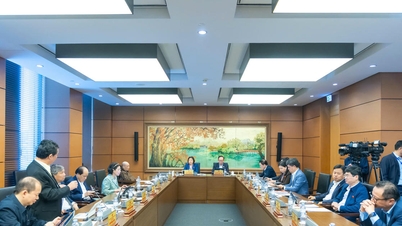

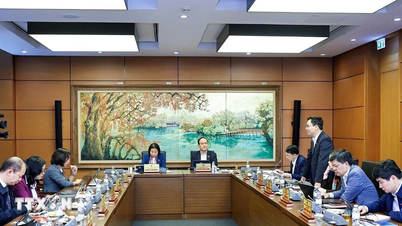

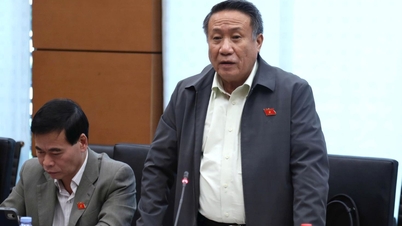





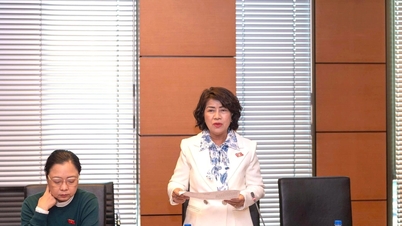

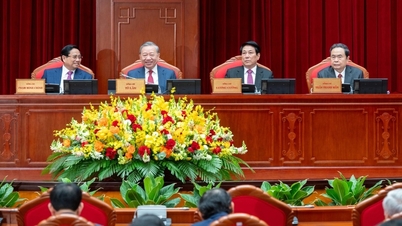
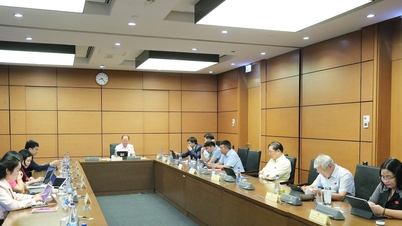

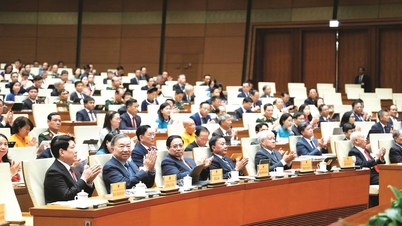
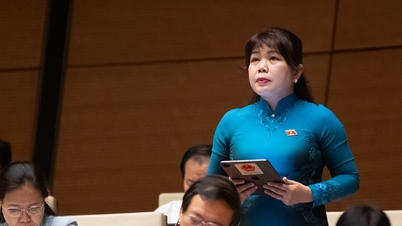
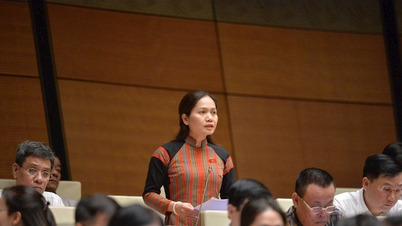








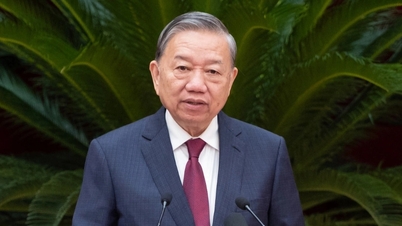























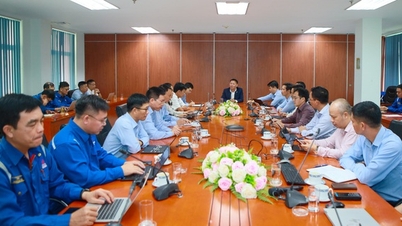



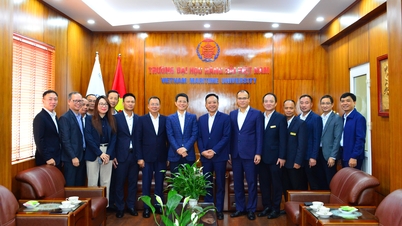

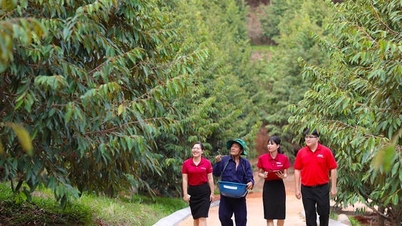














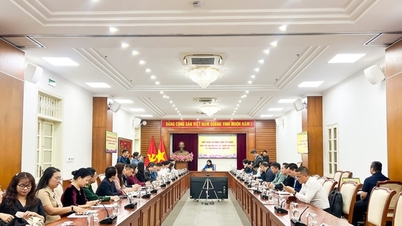




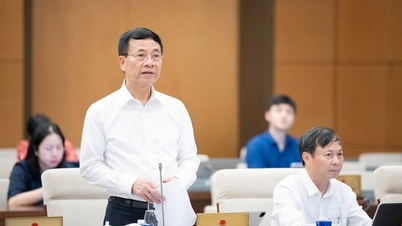






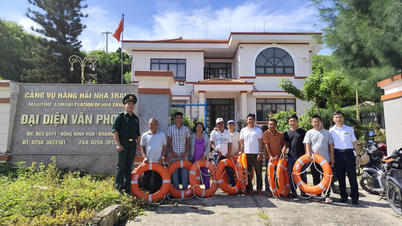
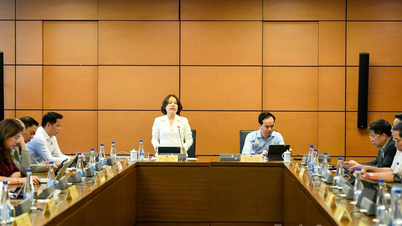

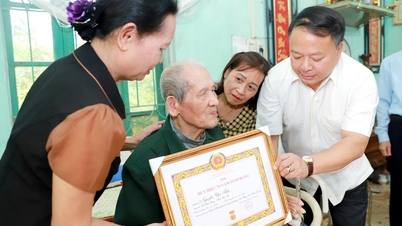














Comment (0)